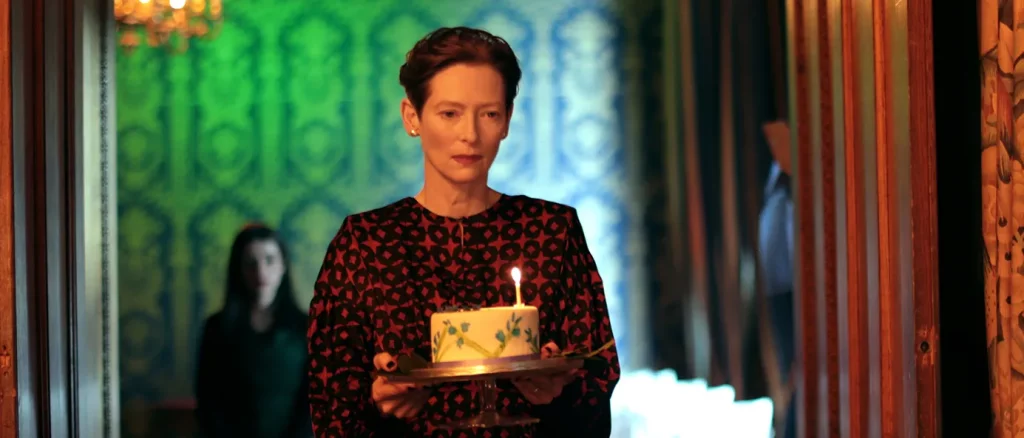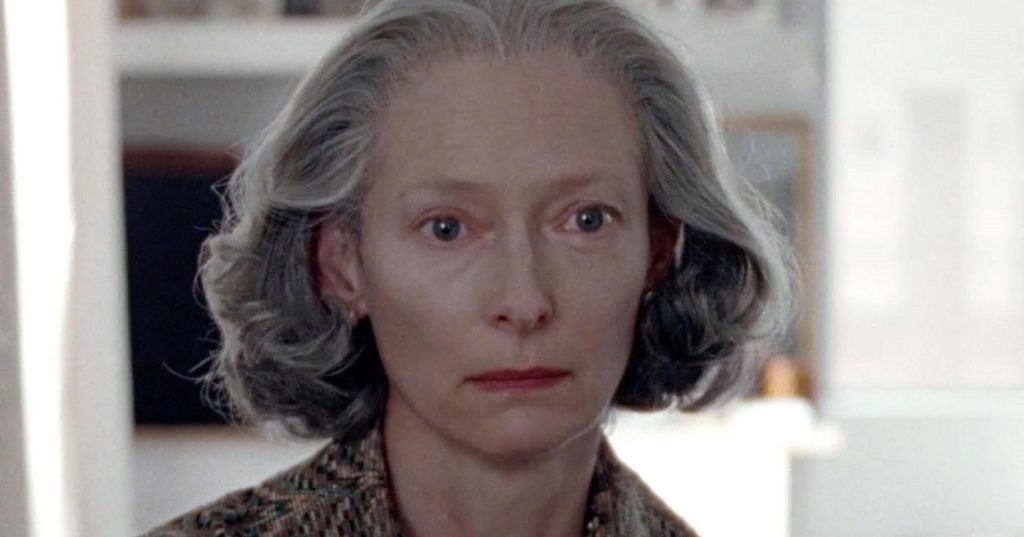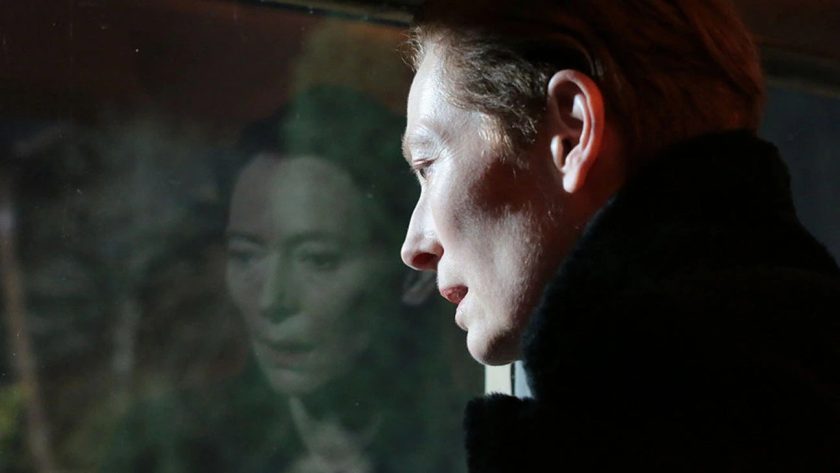BFI’s London Film Festival is in town! The FilmSoc Blog is back for the 66th edition of the city’s largest film festival, delivering a look at the hits and misses of the 2022-23 season.
◯ Warning: this review contains spoilers.
Madeline Choi reviews Joanna Hogg’s newest meta-gothic feature film double-starring Tilda Swinton.
Joanna Hogg’s newest gothic film The Eternal Daughter sees Julie (Tilda Swinton) and Julie’s mother (Tilda Swinton- yes, you read that right) get away on a trip to an old, haunted hotel in the countryside for Julie’s mother’s birthday. The film, a “meta” addition to The Souvenir films (with Swinton reprising her role as Julie’s mother as well as playing an older version of Byrne’s Julie), showcases a very personal mother-daughter relationship told through a ghost story, whilst highlighting Julie’s mind as a screenwriter.
The film immediately adheres to the gothic genre with the mother-daughter duo riding up into the countryside in a cab, with the driver relaying stories and myths of local hauntings, as they drive through the thick fog en-route to an isolated, ancient hotel. Julie is met with a somewhat hostile, young front-desk worker as she stubbornly asks for a specific type of room facing the gardens that surround the hotel. However, it’s clear from the beginning that something isn’t right. Julie fails to fall asleep as she hears (what she thinks is) a window shutting and opening above her. Her and her mother are the only guests occupying the hotel. The one and only front desk worker runs away in a booming car every night. The howling of the wind echoes throughout the empty hallways, solely lit by a green light. Eerie would be an understatement to describe the hotel. Later on, the film reveals that this hotel used to be Julie’s mother’s childhood home, with her aunt being the owner of the home before the war. It all seems to fall full-circle when she prepares to blow out the candles of her birthday cake, with her daughter on the other side of the cake.

The camera never tricks the audience. We, as the viewer, never get to see Julie and her mother in the same frame. Instead, the dialogue between the two women is portrayed through a series of ping-pong like two-shots. It’s obvious that there seems to be a barrier between their connection. We just can’t put our finger on it. Julie, a filmmaker, begins to ask her mother a series of deeply personal questions and hits the record function on her phone every single time. She asks her mother about her past, highlighting specific moments of her childhood that are tied with specific rooms in her childhood home. It’s evident that Julie, just like in the Souvenir films, is determined to make a film personal to her mother and by extension, her. The most glaring comparison that could be made to this film would be that of Kubrick’s The Shining. Mornings seem to blend into afternoons which seamlessly transition to dinners in the hotel’s restaurant. The hotel’s layout is never properly visually explained to the audience, with the film looping between their hotel room, the front desk, the garden in which she calls her husband from, the restaurant, and her work area. The film is plagued with mundane activities such as dog-walking, talking on the telephone, writing postcards and choosing from a menu with three items on it. The film itself acts as some type of maze, with daughter Tilda Swinton and mother Tilda Swinton at the very centre of it.
The film leads like a ghost story. Like The Shining, the film acts as a maze with a ghost story at its core. Like Jack Nicholson’s conversation with the hotel’s bartender, Tilda Swinton engages in conversation with a member of the hotel’s staff- about life, regret, death, and memory. The film also highlights Julie’s own struggle, projecting her inner monologue onto the fact that her mother seems to be disappointed by the fact that Julie does not have kids of her own. The relationship portrayed seems to be difficult for Julie to fully appreciate. Her mother often glosses over her more vulnerable questions, and she can’t help but to feel like an uninvited guest when she pushes her to talk about her childhood. The film’s twist is a very last-minute, but an expected one. That being said, although expected, the film seems to tie all its loose ends as it satisfyingly leads the audience to the exit of its maze. The film throws Julie’s mother’s death to the audience as we are confronted with Julie blowing out the birthday candles by herself, accompanied by the hotel’s front desk worker awkwardly standing behind her.

The film’s greatest strength (without a doubt) comes from Tilda Swinton’s double performance. It’s distractingly unconvincing at times, lending itself to the overarching plot twist that her mother is a figment of her imagination. The film is loaded with awkward British humour, preventing the film from feeling stale and stagnant, which could have easily been the case due to the film’s singular setting and lack of plot. Fans of Joanna Hogg can appreciate how slow, and intricate her films feel- with every detail seeming very personal to the director. The first half of the film requires immense patience, with nothing happening except the film sending the audience into its mundane loop of activities. The film throws gothic genre elements at the audience, expecting us to anticipate a horror film of sorts.Thus, almost feeling like a distraction of some sort. But the haunting twist of the second half of the film manages to sneak in a gut-punch.
Hogg’s tight 96 minute runtime and gothic drama lends itself to more than just that of a ghost story. It’s a story about a mother and daughter who fail to fully let the other party in, but leaves the audience asking questions about Julie and her relationship with her work. If considered as an extension of The Souvenir films, it could be seen that this film is very personal to the director- with her wanting to make a film about her own life, with her own mother passing away during the post-production process of The Eternal Daughter. It’s through this that Joanna Hogg tells a story of memory and regret, through the haunting of Julie as a screenwriter and daughter.
You can watch the trailer for The Eternal Daughter here:




